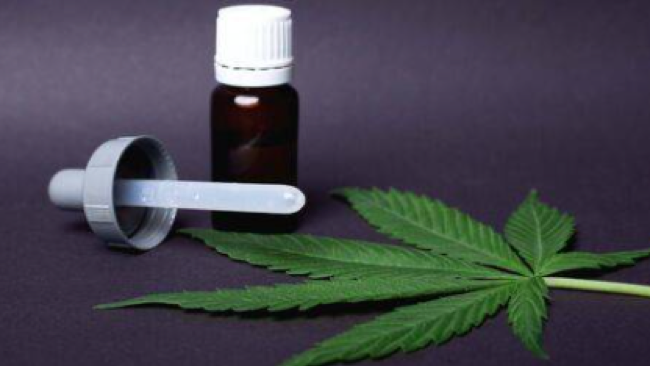Advocates of the legalization of cannabis as a medicine won a practical victory when the Dangerous Drugs Boards (DDB) approved a resolution allowing the utilization of cannabidiol (CBD) to mitigate severe sorts of epilepsy. The DDB is the government body responsible for developing drug prevention and control policies and methods.
The utilization of marijuana remains illegal within the country for recreational and medical purposes. This includes the cultivation of autoflowering marijuana seeds for medicinal use.
However, the utilization of cannabidiol is taken into account to treat certain rare sorts of epilepsy like Lennox-Gastaut and Dravet syndrome.
Commissioning
Undersecretary Benjamin Reyes, a perpetual member of the DDB, said that WHO had suggested to the Commission on Narcotic Drugs (CND) to allow CBD containing 0,2% of THC to be reclassified.
According to a report by the World Health Organization (WHO), “In humans, CBD has no effect indicating the potential for abuse or dependence. To date, there’s no evidence of public health issues associated with the utilization of CBD.”
Taking Consideration on Approval from The United States
The Philippines is a signatory member to the United Nations Convention on Psychotropic Drugs. In 2018, the DEA in the U.S., CBD is legal to use with under 0,1% THC. Within the same year, the U.S. Food and Drug Administration (FDA) approved the regular use of Epidiolex produced by G.W. Pharmaceuticals to treat seizures related to two rare and severe sorts of epilepsy – Lennox-Gastaut syndrome and Dravet syndrome.
Filipino Kids Experienced Seizures Can Benefit the Potential Advantages Of CBD
Within the Philippines, 250000 kids experience seizures per year. If the bill becomes a law, it will allow and regulate the use of medical cannabis, which has been observed to hold beneficial and therapeutic advantages in treating chronic or debilitating diseases.
It will also secure medical cannabis dispensaries (MCCC), which can be entitled to sell and provide medical cannabis to conditional patients or their caregivers through authorized pharmacists.
Setting Up A Method If the Legislature Passes the Bill
“Our position is that there’s no need for a bill,” said Mr. Reyes of the DDB. “We can speed up the method if the legislature passes the bill. We don’t get to await the CND’s decision because our local laws will take precedence”.
“But even without the law, as long because it is in drug form, it is often registered,” he said. “Like opiates and morphine, they’re dangerous drugs, but within the sort of medication, they will be used. Cocaine is employed for anesthesia”.
He said that the DDB had conducted public hearings with the PCCS, especially on the following points:
Reclassification of Cannabis
Reclassification of CBD-containing drugs with no quite 0,1% THC from Schedule 1 (no medical use currently accepted for treatment within the Philippines) and Schedule 2 (presently accepted medical use ) in Schedule 4 (currently accepts medical use within the Philippines and has a low potential for abuse);
Creation of guidelines for resolving the DDB board of directors entitled “Requirements for the difficulty of a license to accumulate, possess and use unregistered pharmaceutical products containing dangerous drugs for private use.” “We adopted it in theory last December,” said Reyes.
Getting into The Market
For now, the downside is that the Epidiolex costs $ 32 per patient, which is enough for one year of use. Senator Bong Go, chairman of the Senate Health and Sports Committee, is working on an amendment to this drug’s budget allocation, said Reyes.
Reyes said the plan is to permit the University of the Philippines College of drugs to import the Epidiolex, make a registry for patients who need it, and urge the medications free of charge.
“It will take a while because we’d like a budgetary allocation from the Senate,” said Reyes.
However, this is often a welcome development for cannabis patients, their families, and supporters of the reclassification of cannabis to Schedule 4. He recognizes that cannabis may be a drug, which it is low potential for abuse.
A Step in the Right Direction
“Besides, the efforts of the DDB, after discussions to make a mechanism for patients to access cannabis, is another welcome development. It departs from the intensely prohibitive position of state agencies towards this plant which has the potential to heal and help Filipino suffering from a disease,” said the CCP. “We hope this step within the right direction will pave the way for affordable, safe and available medical cannabis for all patients.”
Bottom Line
Many Filipinos believe that cannabis “really features medical use.”
To be classified as medicine, the advantages of cannabis on health and wellness must outweigh the negative effects. Furthermore, the majority of Cannabis Compassionate Philippines are sure that eventually, with technology, Filipinos are ready to embrace legalization.
If the bill is approved as law, 200000 children with seizures will have the chance to measure life without or with fewer seizures.





